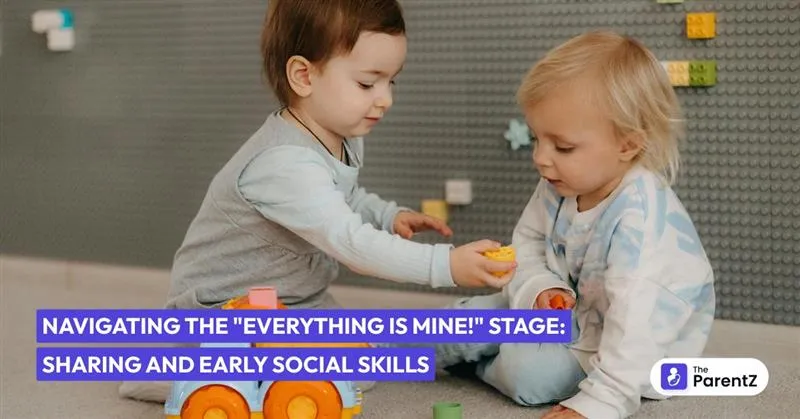You hand your toddler a bright red toy car. They smile. Another child reaches for it—and suddenly, the calm dissolves into a firm “MINE!” followed by a tug-of-war that ends with tears (from at least one party).
Welcome to one of the most adorably maddening parts of early childhood: the “Everything is Mine!” stage. It’s dramatic. It’s loud. And believe it or not—it’s totally normal.
Read this article to find out why toddlers struggle with sharing, when it gets better, and how you can gently guide your child toward healthier social skills.
Why Do Toddlers Act Like Tiny Toy Hoarders?
Here’s the truth— toddlers aren't being selfish. They’re being... toddlers.
Between 18 months to 3 years, a child’s brain is rapidly developing—but empathy and impulse control aren’t exactly at full power yet. They see something they like, they want it. If someone tries to take it, it feels like an attack. So, they cling harder.
In developmental psychology, this is linked to egocentric thinking—kids at this stage truly believe the world revolves around them. It’s not arrogance; it’s just where they’re at cognitively. According to child development experts, most children don’t start truly grasping the concept of sharing until around age 4.
So yes, that “Mine!” scream? Totally age-appropriate.
When Should You Worry?
It’s easy to worry if your child isn't the playground’s peace ambassador. But experts agree: unless your child is physically aggressive every time or significantly behind on other social cues, this behavior is not a red flag.
Most kids gradually grow out of possessiveness as they interact more with peers, especially in preschool or playgroups. Studies show that regular group play boosts both empathy and patience in children over time.
Still, that doesn’t mean you can’t help things along.
5 Gentle Ways to Encourage Sharing
You can’t force a toddler to want to share, but you can help them understand it. Here’s how:
Model It Constantly
Kids learn by watching. Share your food with them and say, “I’m sharing my apple with you.” When they see you do it with a smile, they slowly connect sharing with kindness.
Use Play to Teach
Play games that involve taking turns. Even a simple game like rolling a ball back and forth can introduce the concept of mutual enjoyment.
Praise the Effort
When your child does share, even if it's just for a second, celebrate it. “Wow, you shared your truck with Sam! That was really kind.” Positive reinforcement goes a long way.
Set Clear Boundaries
Teach the difference between communal toys and special “just-for-me” toys. If there’s a toy they’re not ready to share, it’s okay to keep it aside during group play.
Use Simple Language
Toddlers respond to short, clear phrases. “It’s his turn now. You’ll get your turn next,” said calmly, helps more than long explanations in the heat of the moment.
What If They Just Refuse?
Take a breath. Some days will be rough. But remember: you’re not raising a fully-formed adult—you’re shaping one. Your child isn’t being defiant. They’re learning. Slowly, imperfectly, and in their own time.
You can also lean on books and stories that illustrate sharing in fun, visual ways. Titles like Llama Llama Time to Share or Mine! by Shutta Crum can work wonders with kids who relate better through stories.
The Big Picture
By the time your child is in preschool or kindergarten, you’ll likely see big changes. A recent 2022 survey by Zero to Three found that over 80 percent of parents noticed improved sharing skills in their children after age 4, especially when they were regularly exposed to cooperative activities.
So, hang in there. Every “MINE!” moment is really just your child testing boundaries, learning independence, and slowly understanding community.
Conclusion
If you’ve ever left a playdate feeling like your toddler was the most territorial kid in the room, you're not alone. You're just in the thick of a totally normal stage of development.
Be patient. Be kind. And yes—keep snacks and extra toys on hand for backup.








Be the first one to comment on this story.